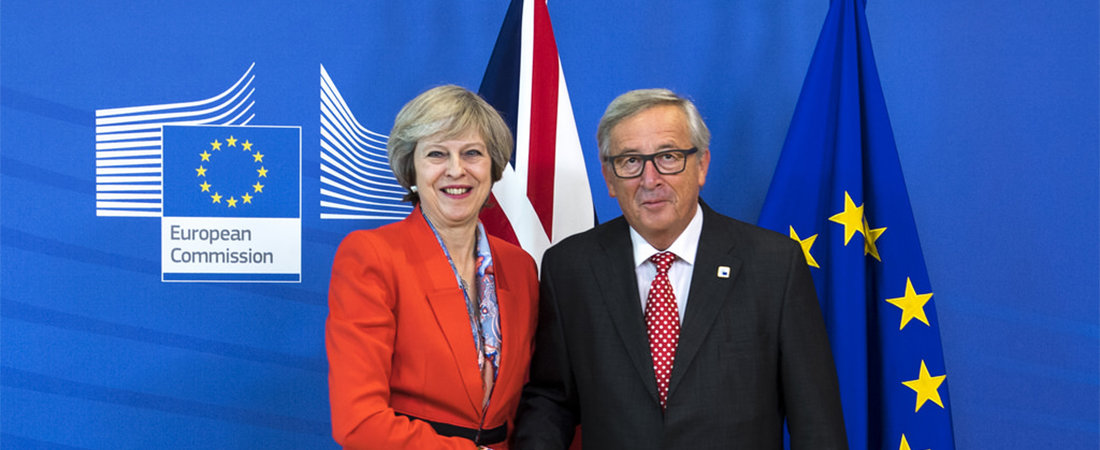Following the last few days, it would seem the Brexit negotiations have begun to turn sour. EU leaders have accused the Prime Minister of “living in a different galaxy” and suggested that her demands are “delusional” – terms hardly conducive to a cooperative and collaborative negotiating atmosphere.
High level leaks of Juncker and May’s supposedly disastrous dinner, interventions by Angela Merkel and claims that the so-called Brexit bill could now look more like €100 billon, have left a bitter taste in the Prime Minister’s mouth. The result has been warnings from the Prime Minister that she intends to be “bloody difficult” in the talks ahead.
With so many cooks it is perhaps no surprise that the Brexit broth has been spoilt.
Already one of the earliest obstacles in the negotiations, the revised figure for the Brexit bill has now ballooned to include farming subsidies and EU administration fees. Worried about the Brexit shaped hole in the EU’s budget, the likely underwriters in Germany have also sought to deny the UK a share in physical assets and reimbursements on EU-backed loans to Ukraine and Portugal until they are repaid in full.
As a net contributor, Brexit was undoubtedly going to unearth concerns over money. However the final fee remains open for interpretation. Chief Negotiator for the European Commission, Michel Barnier, remains keen to agree a methodology for deciding the UK’s liabilities and assets, and his press conference on Wednesday went some way to walking the €100bn figure back.
Speaking in a more measured tone at a press conference on the European Commission’s draft negotiating mandate, Barnier stated that he would focus on facts and the letter of the law rather than engaging in hostile emotional arguments. Refusing to be drawn into a debate on numbers, he reiterated the line that whatever the sum, it isn’t a punishment or a bill for exiting the EU. Rather, it is the UK’s existing financial commitments. While the UK population may view things slightly differently, Brexit Secretary David Davis has stated that the UK will pay “what is correct in law”.
European Parliament’s Brexit lead, Guy Verhofstadt, has also weighed into the debate, this week focussing his attentions on the rights of EU nationals currently residing in the UK. This comes as no great surprise, with Portland previously predicting that he would intervene in the debate at every possible opportunity.
According to the former Belgian Prime Minister, any deal needs to be reciprocal and should extend to all those who enter the UK right to remain until the day of Brexit – and that this issue should be resolved before any trade deal can be discussed. Verhofstadt’s timeline should be good news for Theresa May, who allegedly thinks the issue can be resolved by June. As leaks have demonstrated this week however, this looks unlikely to be the case given Juncker’s position that such expectations are not just impossible, but reflective of the UK’s supposedly ludicrous expectations when it comes to Brexit more generally.
This testing of relations has led to an early breakdown in trust. Martin Selmayr, Juncker’s Chef de Cabinet, is widely assumed to be the source of the recent leaks from Brussels. Selmayr is roughly equivalent in role, power and influence to Theresa May’s joint chiefs of staff, Nick Timothy and Fiona Hill.
Although his motivations behind the leak remain unclear, if the aim was to put pressure on the Government or indeed to frighten hard-line Brexiteers into thinking differently, then they will be disappointed with the outcome. If anything it has given succour to Theresa May’s election campaign.
However, backfire or success, trust has eroded on both sides. That’s not good for the UK and it’s not good for the EU either. As Barnier suggested this week, these negotiations will be neither painless nor quick. Descending into unpleasantness on both sides before things have really got started simply won’t help anyone.
And of course all of this is simply the appetiser, the amuse bouche canapés before negotiations get underway. Negotiations still aren’t fully underway. Even the timetable isn’t yet clear. At least the EU’s negotiating guidelines are now agreed, and Barnier has his mandate.
The next set piece moment is the summit on the 22nd of June when the EU Council will next meet. Is there space for generating positive momentum between when, as predicted, the Conservative’s form a new Government on June 9th and that summit? Probably not. But for the sake of a good outcome, reigning in the slanging matches and dampening down the collective public criticism between now and when things really get going needs to happen.
Turn your eyes back to the General Election campaign, and the opposition parties are already looking to capitalise on this week’s Brexit woes. Labour leader, Jeremy Corbyn has hit out at Theresa May, warning that her “megaphone” diplomacy would fail to get a good deal for Britain. The Lib Dems have also been vocal, with former deputy Prime Minister, Nick Clegg, setting up camp with those that are calling Theresa May ‘deluded’.
Amidst the opposition’s comments however, if anything, this week’s confrontation has provide fodder for Theresa May’s election campaign, using the events to demonstrate that when it comes to negotiating a good deal for Britain, she is the only viable option.

